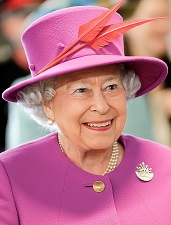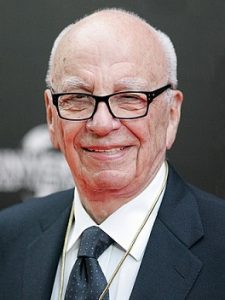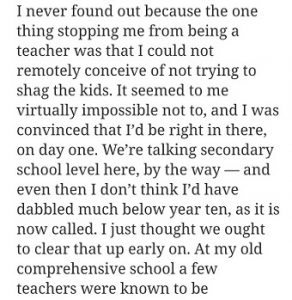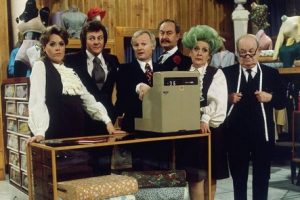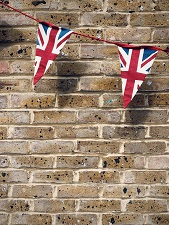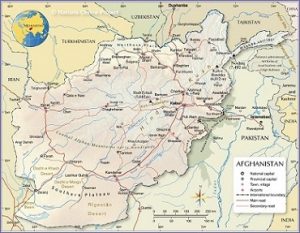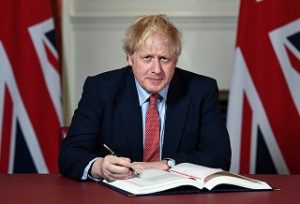
From wikipedia.org / twitter.com
I firmly believe that if the Covid-19 virus, aeons from now, evolves into a multi-cellular organism, and further aeons from that, evolves into a humanoid being with homo sapiens’ abilities of thought and speech, it will look and sound a lot like Britain’s current, though hopefully soon to be ex, Prime Minister Boris Johnson.
The big, blonde, blobby and bloviating Johnson and the humble 50 to 140-nanometre-wide Covid-19 virus already share many characteristics. Both of them made life miserable for large numbers of people in the early 2020s. And both have similar effects on the human physique. They both induce headaches, exhaustion and severe respiratory problems. Though with Covid-19, the respiratory problems are the result of it filling the lungs’ air sacs with fluid, which seriously reduces their capacity to take in oxygen. Whereas with Johnson, the problems come from exposure to his non-stop idiocies, venality, lying and gaslighting, which destroys your will to continue breathing.
Meanwhile, just as Covid-19 keeps mutating and keeps coming back at us in a dismayingly endless series of variants, such as the alpha, beta, delta, gamma and omicron ones, so too has a variety of Johnson variants appeared over the years.
The 1980s saw the Bullingdon Johnson variant – he was an enthusiastic member of the Bullingdon Club, the Oxford University dining club for posh yobs, who liked to strut around in tailcoats, waistcoats and bowties, wreck restaurants and burn money in front of homeless people. This was followed by the Sacked Trainee Journalist Johnson – the Times dismissed him when they discovered he’d made up a quote for a front-page story – and the Criminal Accessory Johnson – he agreed to supply his old Bullingdon mate, the businessman and future jailbird Darius Guppy, with the address of a journalist to whom Guppy wanted to administer a severe beating.
In the 1990s there emerged the Lying-about-Europe Johnson, courtesy of the Daily Telegraph, who’d offered him refuge after his fall from grace with the Times – as the Telegraph’s Brussels correspondent, Johnson wrote wildly exaggerated pieces on how the evil EU was imposing nasty and stupid regulations on plucky little Britain, helping generate the Euro-scepticism that eventually won the 2016 referendum in favour of Brexit.
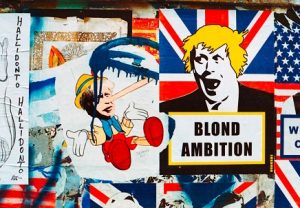
From unsplash.com / © Annie Spratt
Around this time, certain Johnson variants appeared that have persisted to the present day. For example, the Racist, Homophobic Johnson – he’s described black African people as ‘piccaninnies’, described gay men as ‘tank-topped bumboys’, called Chinese workers ‘puffing coolies’, likened gay marriage to bestiality and compared Muslim women to ‘letterboxes’. That last remark, made in a notorious column in the Telegraph in 2018, was followed by a 375% rise in incidents of Islamophobia reported in the UK.
So too emerged the Shagger Johnson – he’s had extra-marital affairs with Marina Wheeler, whom he married in 1993 a dozen days after his marriage to Allegra Mostyn-Owen was annulled, with Petronella Wyatt, allegedly with Anna Fazackerley, with Helen Macintyre, with Jennifer Arcuri, and with Carrie Symonds, whom he married in 2021 following the end of his marriage to the long-suffering Wheeler. He also tried to punt Symonds into a six-figure-salary job in the Foreign Office in 2018, while he was Britain’s Foreign secretary and she was still his mistress.
As Johnson has shimmied up the slimy pole of politics, from Member of Parliament to Mayor of London to leader of the Conservative Party and Prime Minister, further variants have materialised. There’s been the Partying with Oligarchs Johnson – in 2018, while Foreign Secretary, he was seen stumbling about an Italian airport suffering from a severe hangover, and lacking his security detail, after attending a shindig thrown by Russian media magnate Evgeny Lebedev at his castle near Perugia. Oddly enough, Lebedev subsequently received a peerage and now, technically, is ‘Baron Lebedev, of Hampton in the London Borough of Richmond on Thames and of Siberia in the Russian Federation’. The Talking Gibberish Johnson has also been observed – blabbering about Peppa Pig during an address to the Confederation of British Industry or filling the 2021 Tory Party Conference with excruciating riffs on his ‘Build Back Better’ slogan, such as ‘Build Back Butter!’ and ‘Build Back Beaver!’
Of course, we can never forget the Corrupt Johnson – detected, for instance, during the Wallpapergate saga wherein he and his missus tried to get Tory Party donors to foot the bill for more than 200,000 pounds’ worth of refurbishments to their flat, or during Johnson’s abortive attempts to get dodgy MP Owen Paterson off the hook after the Commons Select Committee on Standards recommended that he be suspended for breaking paid advocacy rules. Nor can we overlook the Breaking Lockdown Johnson – he seemingly presided over non-stop partying at No 10 Downing Street while the nation was under strict lockdown rules to slow the spread of Covid-19, which resulted in the police issuing 126 fines to Johnson, his wife, his Chancellor and their staff, making No 10 the most lawbreaking address in Britain during the pandemic.

From the BBC / © Daily Record
Obviously, the most virulent variant is the Big Fat Liar Johnson, which basically manifests itself every time he opens his mouth. To Conrad Black, media magnate and owner of the Spectator, in 1999 – make me Spectator editor and I won’t become an MP! (He did.) To the people of the constituency of Henley in 2001 – make me your MP and I’ll step down as editor of the Spectator! (He didn’t.) In response to claims that a mistress had to have an abortion in 2004 – it’s an inverted pyramid of piffle! (It wasn’t.) During campaigning for the 2016 Brexit referendum – if we leave the EU, we’ll be able to give an extra 350 million pounds to the National Health Service every week! (We weren’t.) To Londoners – I’ll build a garden bridge across the Thames! (He didn’t.) To Northern Irish Unionists – I won’t stick a trade border in the Irish Sea between you and the rest of the UK! (He most certainly did.)
To Keir Starmer – as Director of Public Prosecutions at the time, it was your fault Jimmy Saville escaped prosecution for his crimes! (It wasn’t.) In response to Partygate – I didn’t know about the parties! / The parties weren’t my fault! / I didn’t realise they were parties! / They didn’t actually break any rules! / I was only at them for a minute! (He did / They were / He did / They did / He wasn’t.) On the scandal involving the promotion of MP and serial groper Chris Pincher to the position of the Tory Party’s Deputy Chief Whip – I didn’t know he was a sex pest before I appointed him! (Oh yes you did.)
The Pincher scandal proved to be the straw that broke the camel’s back for those Tory politicians who’d supported Johnson or at least tolerated him. Last week, his ministers and MPs turned against him, first with the resignations of Chancellor Rishi Sunak and Education Minister Sajid Javid, and then with a deluge of resignations by MPs serving as ministers of state, private parliamentary secretaries and trade envoys. Even David Mundell, the embarrassingly cringy and spineless MP for Dumfriesshire, Clydesdale and Tweeddale, the constituency I’m from in Scotland, quit his position as Trade Envoy to New Zealand. On July 7th, Johnson at last accepted that the game was up and announced his resignation as Prime Minister. Here was a scrape that even he couldn’t squirm, worm and wriggle his way out of. The greased piglet, as David Cameron once called him, had finally been degreased, and spitted, and roasted.
Or had he? People have noted that his supposed resignation speech suspiciously lacked mention of the word ‘resignation’. Indeed, it lacked anything hinting at the vaguest feeling of remorse or apology. And Johnson only agreed to resign on the condition that he remain in post as ‘caretaker’ Prime Minister until the autumn, after a new Tory leader and Prime Minister has been chosen. Ominously, Johnson’s old advisor, now bitter enemy, Dominic Cummings tweeted on the matter: “I know that guy & I’m telling you – he doesn’t think it’s over, he’s thinking, ‘there’s a war, weird shit happens in a war, play for time, play for time, I can still get out of this, I got a mandate, members love me, get to September…’ If MPs leave him in situ there’ll be CARNAGE.”
Yes, just as we dread that Covid-19 will never be defeated, and will become a permanent, malignant feature of our increasingly fraught world, so Boris Johnson might never depart either. God help us.

From unsplash.com / © CDC

